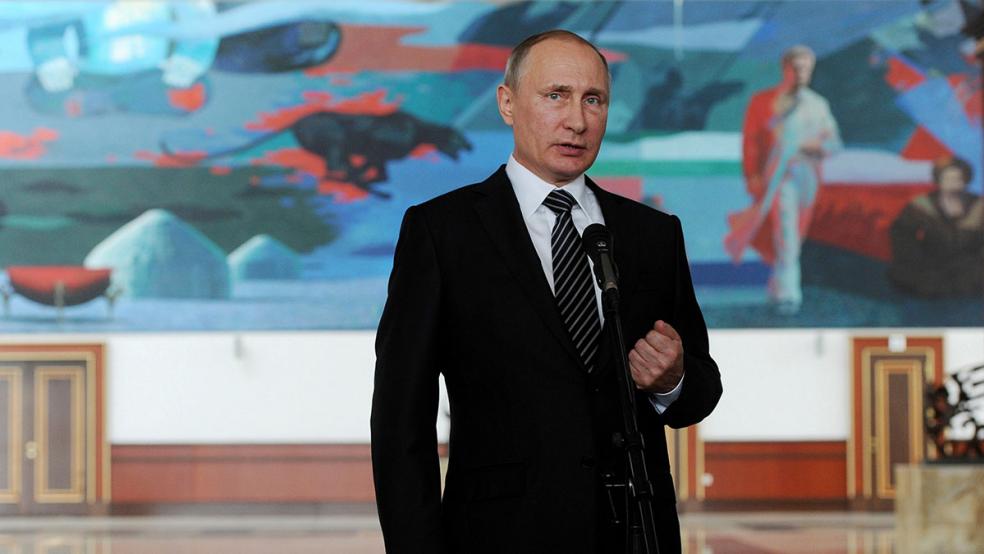The mounting evidence that the Russian government has at best tolerated and at worst commissioned computer hackers who are actively interfering in U.S. politics has been the subject of much outrage and speculation about motives. Much of the thinking from foreign policy pundits has suggested that Russian President Vladimir Putin sees causing electoral chaos in the United States as a power move in a struggle between two nations that want to exert maximum influence around the globe. And if it gets a Kremlin-friendly Donald Trump elected president, so much the better.
But in an article published in The New York Times today, Yale history professor and author Timothy Snyder posits a more insidious goal: undermining public faith in democracy itself, not just in the U.S., but worldwide.
Related: The Battle of the Brands Isn’t Trump v. Clinton, It’s Trump v. Obama
Putin, Snyder suggests, is taking his cues not from the old Soviet Cold War playbook but from a strain of Russian fascism whose chief proponent, a philosopher named Ivan Ilyin, was expelled from the country in the years following the Communist revolution.
Ilyin, Snyder explains, has been undergoing a years-long rehabilitation in Putin’s Russia. The president himself had the philosopher’s body exhumed in Switzerland and reburied with honor in Russia several years ago, consecrating the new grave himself. Ilyin’s books have been widely reprinted and are often praised by Putin and those close to him. Prime Minister Dmitri Medvedev, a close Putin ally, has publicly recommended them.
Given Putin’s record of suppressing dissent and aggression, the ideas that undergird Ilyin’s political philosophy may not be all that surprising.
The former White Russian was both staunchly anti-communist and anti-democratic, believing that the people cannot adequately rule themselves and that they should be led by a national dictator. Individuality was an evil that prevented citizens from properly subordinating their own needs to the needs of the state. Elections would still be held under Ilyin’s system, but they would be open, requiring voters to sign their ballots, and would serve only to ceremonially validate the dictator’s position, not to actually choose a leader.
Related: Trump Campaign Struggles to Refute Reports of Charity’s Self-Dealing
The Kremlin’s interference in U.S. elections, Snyder argues, is a way to discredit democracy in general on the world stage.
Having already created a rigged electoral process in Russia, he says, the Putin worldview believes, “Democracy is not a means of changing leadership at home, but a means of weakening enemies abroad. If we see politics as Ilyin did, Russia’s ritualization of elections becomes a virtue rather than a vice. Degrading democracy around the world would be a service to mankind.”
From that perspective, Snyder argues, it’s rational to expect that Russian interference in elections both in the U.S. and elsewhere is likely to be a persistent problem in the future.
“From Moscow’s point of view, it is easier to bring down democracy everywhere than it is to hold free, fair elections at home,” Snyder writes. “Russia will seem stronger if other states follow its course of development toward a cynicism about democracy that allows authoritarianism to thrive. So we might as well get used to the interference, and take sensible precautions. It no longer makes sense to carry out elections and regulate campaign finance as if such matters were of no interest to hostile foreign powers.”
Snyder’s prescription is a “simpler” election system, which includes universal paper ballots and public financing of elections, and would be more secure and “more exemplary.” Unfortunately, in recent years, “exemplary” is not a word often applied to U.S. politics.





